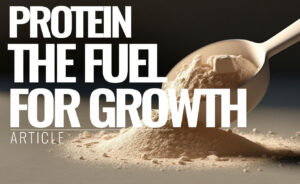
Revive Stronger
52 Compelling Reasons Calories Count
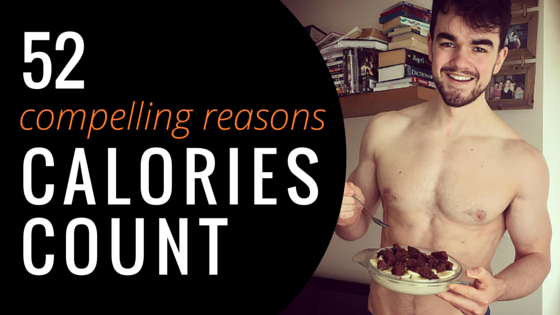
Table of Contents
1. A Calorie is a unit of energy:
It is the amount of energy or heat that is taken to raise the temperature of 1 gram of water 1 degree Celsius. Often, kcal is used interchangeably with “calorie”, so bare that in mind as you read on. [11]
2. Calories come from our Macronutrients:
Fat, Protein and Carbohydrate. Each of these Macronutrients perform specific roles for our body and none should or need to be needlessly excluded. Protein & Carbohydrates contain 4 calories, Fats contain 9 calories and Alcohol contains 7 calories per gram. [11]
3. Fibre is a funny one:
Researchers have assigned a caloric value to fibre of 1.5-2 cal/gram. [2]
4. Recommended Daily Dietary Fibre:
Intakes for children and adults are 14 g/1000 kcal. [1]
5. Protein is pretty cool:
When it comes to weight loss it’s been found that people are successful whether they’re low fat or low carb, so long as they keep their protein the same. [23,24] High protein diets actually help us maintain more muscle when we diet and lose more fat on the same number of calories. [25] Bare in mind also that in every successful weight loss diet there was a Calorie deficit in place.
6. Food Combing is a waste of time:
It doesn’t matter what foods you eat, when you eat them or how you combine them, if you eat too many calories than your body needs to maintain weight, you will gain weight.
7. Nutritional Labels can lie:
Nutritional labels and calorie counts provided by restaurants can be quite inaccurate (see table below) and are allowed to by law miss-report calories by up to 20%. [9] That could mean the frozen pizza you eat that says 400 Calories per half, could be anywhere from 320 to 480 Calories.
8. How many calories you take in and expend is VERY hard to measure.
9. There are no foods that contain 0 calories:
Yes even celery contains calories.
10. Your Resting Metabolic Rate (RMR) is significant:
For most of the population the majority of your total calorie burn for the day comes from your RMR, which is the amount of energy expended while at rest (largely down to your total bodyweight).
11. Estimating your RMR:
A quick & easy way to estimate your RMR is to multiply your weight by 10 if you’re overweight or female and 11 if you’re male & lean.
12. Metabolic Damage:
Your RMR can reduce more than predicted, this is often referred to as metabolic damage but a better term would be metabolic adaption, as nothing is damaged. The reduction in RMR is however minor, in the post-obese it has been ~100kcal lower than predicted. [4]
13. NEAT is NEAT:
Another large component of your total calorie burn that is under your control somewhat is your Non Exercise Activity Thermogenesis (NEAT) & Non Exercise Physical Activity (NEPA). This includes things like fidgeting, standing, walking, gardening etc.
14. Your NEAT might be very different to my NEAT:
Calories expended via NEAT/NEPA can vary to a very large degree, please see the graph below.
15. Sitting on your butt burns Calories:
Sitting motionless burns 77kcal per hour but we burn 235kcal when Walking at 2mph. [5]
16. It’s a Law that can never be broken:
The Law of Thermodynamics dictates; calories taken into the body are never lost, they can be used for energy or stored.
17. You don’t get all the energy from the food you consume:
When we consume foods we lose energy via digestion, this is called the Thermic Effect of Food (TEF). So we do not get all of the calories found within food.
18. Fat burns Calories:
Fat, despite popular belief is metabolically active and burns burns 2kcal per pound, per day however muscle burns 6kcal per pound, but your internal organs burn a whopping 24.4kcal per pound. [3]
19. Your Body fights Fat Loss:
During a fat loss diet your metabolism adapts downwards and you burn fewer calories because of this. This is down to a large number of factors including; you weigh less so it takes fewer calories to maintain, you’re eating less so your TEF comes down, the hormones leptin and thyroid drop, your body gets lazy & so your NEAT comes down. [8]
20. Bad Sleep Makes You Hungry:
In one study men were given 4 hours of sleep for 6 nights followed by 6 nights of 12 hours sleep, it was found leptin levels were 26% lower when sleeping for only 4 hours. Leptin is produced by our fat cells and tells our brain we’re full, so as you can imagine when we get poor sleep we could end up eating more Calories. [29]
21. Fidgets get to eat more:
Standing whilst fidgeting burns 148kcal per hour vs. 88kcal whilst standing motionless. [5]
22. Watch your steps for greater Calorie burn:
Pedometers help increase our total calorie burn by increasing our NEAT. [6]
23. Insulin we have judged you wrongly:
It doesn’t matter how much you spike your insulin levels, you won’t gain fat in a calorie deficit.
24. How to gain weight:
You could have a post-workout shake everyday, but if you don’t provide your body with more calories than it needs to maintain weight, you will not gain muscle mass.
25. Mini Meals vs. Gorging:
When total calories are matched it doesn’t matter how many meals you eat, your ability to lose fat is determined by the size of the calorie deficit. [28]

26. Thou shall not eat past 6pm:
You cannot trick your body into losing fat by not consuming calories after a certain time. If you do lose weight it’s because this restriction led to a Caloric restriction.
27. Fat Burning doesn’t necessarily mean Fat Lost:
Burning calories whilst in a ‘fat burning’ zone doesn’t mean you’re necessarily burning body fat in the long term, that is determined by your chronic calorie intake, and without a deficit you will not drop fat.
28. Fasted Cardio, is it worth it:
Doing exercise to burn calories before you eat (e.g. fasted cardio) will not burn more fat than doing exercise after you eat, in fact eating beforehand could allow you to perform at a higher level and therefore burn a greater number of calories, allowing you to get into a deeper calorie deficit and burn more fat.
As long as total daily nutrition is equated, body composition from aerobic exercise and a calorie deficit conditions are similar regardless of fasted vs. fed training. [14]
29. The treadmill isn’t a requirement for Fat Loss:
Cardio isn’t required to burn fat, it can however aid in achieving a calorie deficit which is required for losing fat.
30. Gaining weight is easy, we want muscle:
To gain weight you need to eat a surplus of calories, to gain muscle it is wise to get 1g of protein per pound of bodyweight & utilise high volume resistance training.
31. Feed more, burn more:
When you eat more food your total energy expenditure will very likely go up because; you’re eating more so have a higher TEF and your body often increases NEAT when over-fed. In some cases people burn almost 1,000 extra calories per day and gain almost no fat. [27]
32. Fat Burning Supplements, more like Fat Loss Aiding Supplements:
Fat burning supplements cannot burn body fat without a caloric deficit. They often aid fat loss because they suppress appetite and slightly increase metabolic rate, which aids in creating a caloric deficit.
33. Another reason to love coffee:
Caffeine, which we know is in coffee and our beloved energy drinks is also usually found in high doses in fat burning supplements, this is because caffeine at a 200mg dose increases the average persons calorie burn by 14 calories per hour. [7]
34. Sorry bro BCAAs contain Calories:
Branch Chain Amino Acids (BCAAs) are the building blocks of protein, they are often found to contain zero Calories on food labels, this is not the case, every gram of BCAA contains the same number of Calories as Protein; 4.
35. Calories are King:
When it comes to our diet, Calorie intake has the most powerful influence on our health and body composition, however it is not the only thing we need to focus on for optimal health, refer below to your dietary priorities.
36. Clean eaters gonna hate:
It doesn’t matter if you consume only ‘clean’ calories, if you have too many you will gain weight.
37. Clean Eating is a Scam:
No food is inherently bad or good; it’s all about context and reasoning. For 10 weeks, Mark Haub, a professor of human nutrition at Kansas State University, ate one Twinkie every three hours, instead of meals, plus he munched on Doritos chips, sugary cereals and Oreos, too. His premise: That in weight loss, pure calorie counting is what matters most — not the nutritional value of the food. So he limited himself to less than 1,800 calories a day.
What happened?
- His body mass index went from 28.8, considered overweight, to 24.9, which is normal.
- His body fat dropped from 33.4 to 24.9%.
- His “bad” cholesterol, or LDL, dropped 20% and his “good” cholesterol, or HDL, increased by 20%.
So eating clean is a scam? No, as above the type of food you eat does play a role, you see Haub’s also took a multivitamin pill, drank a protein shake daily and he ate vegetables, typically a can of green beans or three to four celery stalks. Food quality still matters, eating minimally processed, highly nutritious, whole foods helps to keep hunger under control and keeps you healthy in the long run. [22]
It’s however a great reminder that for weight loss, calories count.
38. Stop lying about the biscuit you ‘never ate’:
In a review study called; ‘Assessing dietary intake: Who, what and why of under-reporting’ it was found people would under-report by up to 31%. So someone may say they’re eating 2000 Calories, but in reality they’re scoffing down an extra 620 Calories!
Furthermore, in 11 of the 12 studies reviewed women were significantly more likely to under-report their dietary intake than men. [10]
39. You can gain weight without a Calorie Surplus:
You can gain weight when not in a calorie surplus, but this is water and could be down to; eating a high number of carbohydrates (each gram of stored carb requires 3 grams of water), eating a lot of sodium (increased thirst and therefore water intake), high stress levels (the stress hormone cortisol causes water to be retained). [11]
40. Stop lying about the ‘hard workout’ you ‘did’:
It is often found people overestimate their physical activity levels – by upwards of 600 calories – this is often a problem because people think they ‘deserve’ more Calories than they really do. As seen in the study below the amount of food eaten after the activity was threefold what was actually burned during the activity itself. [12]
41. Education FTW:
Not only do some people suck at reporting Calories expended and consumed, but some of us suck more than others. The researchers wrote: “The important inter-individual variation of estimated exercise EE likely results from the fact that some individuals have little knowledge with regards to the real energy cost of exercise and the energy value of food intake. It would be tempting to speculate that the degree of over-estimation of the energy cost of exercise may relate to a poor exercise-induced weight loss response in some individuals.” [12]
42. Losing weight without counting Calories:
You can lose weight without counting Calories, but you are still consuming fewer Calories than you need to maintain your weight, that has to happen for weight loss to occur.
43. 3500 Calories = 1 pound of fat or does it:
Body fat is not actually 100% fat, it’s somewhere between 85-90%. The rest of the cell is water plus some cellular machinery. One pound (454 grams) of body fat would therefore contain 394 grams of total stored fat which provide 9 Calories per gram to the body so that’s 3,555 calories. That’s where the original 3,500 calorie deficit to lose a pound a week value comes from. [13]
So if you eat 500 Calories too little per day, you probably won’t lose 1 pound, but it will be close. [26]
44. Weight Fluctuations:
If your weight drops or increases from one day to the next it does not necessarily mean you were eating in a Calorie deficit or surplus and lost or gained fat. Weight can fluctuate a lot day to day and this is largely down to changes in the amount of water our body is holding.
45. Calorie Restriction & Living Life:
If you live a Calorie restricted life it might be expected to increase lifespan from an average of 78 to 116 years in men and 83 to 124.5 years in women. It ‘might’ because long term studies have only been done on rodents, and therefore we cannot say for certain. However, consider whether you would enjoy living with constant hunger, low energy levels and feeling cold. Is the supposed benefit worth the cost? [15]
46. Diet & Exercise FTW:
It has been found that people compensate for the exercise they do, they become lazy, sit on the couch more [16] or maybe they increase their Calorie intake. [12] This is why both exercise and diet are important to monitor to ensure a Caloric deficit is in place and we lose weight.
47. The Truth about The ‘Afterburn’ Effect:
The Afterburn Effect is referred to as EPOC (Exercise Post Oxygen Consumption) in scientific literature. It is thought this can really ramp up your metabolism, make you burn more Calories and therefore more fat. However, EPOC only comprises 6 to 15% of net exercise energy expenditure, so if you burned 250 Calories in a workout you would burn 15 to 38 Calories after via EPOC. [17]
48. Numbers don’t Lie:
A study compared 20 x 1 minute intervals at all out intensity vs. 30 minutes continuous at 70% max and the energy difference over 9 hours was only 57kcal. [18] Not really the huge ‘Afterburn’ calorie numbers we see thrown out there.
49. Simple Math is Simple:
The afterburn effect claims to burn high numbers of calories up to 38 hours after a short bout of intense exercise. However studies do not show this, and in one study it showed EPOC was short lived and only lasted 1 hour after a variety of interval/metabolic sessions. [19] In the study the researchers rightly pointed out, that simple maths shows that the increased energy expenditure during the steady state trial more than compensates the small increase in energy expenditure after the workout.
50. Sweat is Fat Crying:
Sweating doesn’t = huge calorie burn. We sweat to keep our core body temperature at a safe level, if it goes above 40°C we experience major health consequences. Whether or not we get hot and how much we sweat depends on many factors including; our genetic make up, environment and physical activity. In fact you’ll find when you diet you actually sweat less, this does not mean you’re not in a Calorie deficit. Other stimuli for perspiration, which are less well understood, are emotional stress or consumption of spicy food. [20]
51. Calorie free, too good to be true:
Something can be stated as ‘Calorie Free’ if it contains under 5 calories per serving.
52. Sweeteners not so sweet:
‘Calorie Free’ Sweeteners like Aspartame actually do have calories, per gram Aspartame has 4 Calories, however because it is so sweet we barely need any of it. [21]
For example Splenda is not Calorie free. It is thought to contain no Calories, this is because per sachet/serving it contains fewer than 5 calories. However, the main ingredients in it are Dextrose and Maltodextrine, both of which contain 4 calories per gram.
Calories Count
So there you have it 52 reasons Calories Count, why 52? No special reason, this is just where I ended up and felt I’d provided sufficient evidence that Calories do and always will count. If I am honest I could keep going forever on this topic, as there are so many ways Calories can be linked to our diet, training and lifestyle.
Hopefully what this has shown is that weight gain and loss is multi-faceted, in that sure a Calorie surplus causes weight gain and a Calorie deficit leads to weight loss, but it doesn’t tell you anything about the cause. There a vast number of inputs and outputs, from how we sleep to our food choices.
What is important is that people are aware of the importance of Calorie intake and burn, and need to be realistic and honest about their eating and exercise habits.
Hopefully this article helps to do that.
PLEASE: Share this so that people can start directing their focus onto what matters most; Calories.
WHAT NEXT?
Do you need any help with the above? Do you have any questions you need answering? Hopefully you now have a new respect for calories or a better understanding of their importance and role in our health and body composition.
Join my free facebook group or add me on snapchat (revivestronger) and ask your question there, I will respond asap. Or if you’re after a fresh training programme I have a free 4 week plan using DUP that you can download for free here.
One more thing…
Do you have a friend who would love the above? Share this article with them and let me know what they think.
[bctt tweet=”52 Reasons Calories Count” username=”revivestronger”]
References:
- Anderson JW1, Baird P, Davis RH Jr, Ferreri S, Knudtson M, Koraym A, Waters V, Williams CL. Health benefits of dietary fiber. Nutr Rev. 2009 Apr;67(4):188-205. doi: 10.1111/j.1753-4887.2009.00189.x.
- http://www.bodyrecomposition.com/nutrition/fiber-its-natures-broom.html/
- Illner K1, Brinkmann G, Heller M, Bosy-Westphal A, Müller MJ. Metabolically active components of fat free mass and resting energy expenditure in nonobese adults. Am J Physiol Endocrinol Metab. 2000 Feb;278(2):E308-15.
- Rosenbaum M1, Hirsch J, Gallagher DA, Leibel RL. Long-term persistence of adaptive thermogenesis in subjects who have maintained a reduced body weight. Am J Clin Nutr. 2008 Oct;88(4):906-12.
- Levine JA1, Schleusner SJ, Jensen MD. Energy expenditure of nonexercise activity. Am J Clin Nutr. 2000 Dec;72(6):1451-4.
- Mansi et al., A systematic review of studies using pedometers as an intervention for musculoskeletal diseases. BMC Musculoskeletal DisordersBMC series – open, inclusive and trusted. 2014, 15:231
- https://examine.com/supplements/caffeine/
- Martin CK1, Heilbronn LK, de Jonge L, DeLany JP, Volaufova J, Anton SD, Redman LM, Smith SR, Ravussin E. Effect of calorie restriction on resting metabolic rate and spontaneous physical activity. Obesity (Silver Spring). 2007 Dec;15(12):2964-73. doi: 10.1038/oby.2007.354.
- http://www.accessdata.fda.gov/scripts/cdrh/cfdocs/cfcfr/cfrsearch.cfm?fr=101.9
- Jennie Macdiarmid and John Blundell . Assessing dietary intake: Who, what and why of under-reporting. Nutrition Research Reviews (1998). 11, 231-253 23 1
- John Berardi & Ryan Andrews. The Essentials of Sport and Exercise Nutrition. Precision Nutrition 2013.
- Willbond SM et. al. Normal weight men and women overestimate exercise energy expenditure. J Sports Med Phys Fitness. (2010) 50(4):377-84.
- http://www.bodyrecomposition.com/fat-loss/3500-calorie-rule.html/
- Schoenfeld et al., Body composition changes associated with fasted versus non-fasted aerobic exercise. Journal of the International Society of Sports Nutrition201411:54, DOI: 10.1186/s12970-014-0054-7
- Speakman JR and Hambly. Starving for Life: What Animal Studies Can and Cannot Tell Us about the Use of Caloric Restriction to Prolong Human Lifespan. C. J Nutr. 2007 Apr;137(4):1078-86.
- Thivel et al., Is there spontaneous energy expenditure compensation in response to intensive exercise in obese youth? Pediatric Obesity., Volume 9, Issue 2, pages 147–154, April 2014
- LaForgia J1, Withers RT, Gore CJ. Effects of exercise intensity and duration on the excess post-exercise oxygen consumption. J Sports Sci. 2006 Dec;24(12):1247-64.
- J. Laforgia, R. T. Withers, N. J. Shipp, C. J. Gore. Comparison of energy expenditure elevations after submaximal and supramaximal running. Journal of Applied Physiology Published 1 February 1997 Vol. 82 no. 2, 661-666 DOI:
- Tucker WJ1, Angadi SS, Gaesser GA. Excess postexercise oxygen consumption after high-intensity and sprint interval exercise, and continuous steady-state exercise. J Strength Cond Res. 2016 Mar 3.
- K. Wilke et al., A short history of sweat gland biology. Version of Record online: 23 MAY 2007. DOI: 10.1111/j.1467-2494.2007.00387.x
-
Sanchari Chattopadhyay, Utpal Raychaudhuri, and Runu Chakraborty. Artificial sweeteners – a review. J Food Sci Technol. 2014 Apr; 51(4): 611–621.
-
Slavin JL, Lloyd B. Health benefits of fruits and vegetables. Adv Nutr. 2012;3(4):506–516. doi:10.3945/an.112.002154.
-
Soenen S, Bonomi AG, Lemmens SGT, et al. Relatively high-protein or “low-carb” energy-restricted diets for body weight loss and body weight maintenance? Physiol Behav. 2012;107(3):374–380. doi:10.1016/j.physbeh.2012.08.004.
- Buchholz AC, Schoeller DA. Is a calorie a calorie? Am J Clin Nutr. 2004;79(5):899S–906S.
- Helms ER, Zinn C, Rowlands DS, Brown SR. A Systematic Review of Dietary Protein During Caloric Restriction in Resistance Trained Lean Athletes: A Case for Higher Intakes. Int J Sport Nutr Exerc Metab. 2013.
- Hall KD. What is the required energy deficit per unit weight loss? International Journal of Obesity (2005). 2008;32(3):573–576. doi:10.1038/sj.ijo.0803720.
- Levine JA, Eberhardt NL, Jensen MD. Role of nonexercise activity thermogenesis in resistance to fat gain in humans. Science. 1999;283(5399):212–214.
- Bellisle F, McDevitt R, Prentice AM. Meal frequency and energy balance. Br J Nutr. 1997;77 Suppl 1:S57–70.
- Spiegel K1, Leproult R, L’hermite-Balériaux M, Copinschi G, Penev PD, Van Cauter E. Leptin levels are dependent on sleep duration: relationships with sympathovagal balance, carbohydrate regulation, cortisol, and thyrotropin. J Clin Endocrinol Metab. 2004 Nov;89(11):5762-71.
We are a personal coaching service that helps you achieve your goals. We want you to become the best version of yourself.


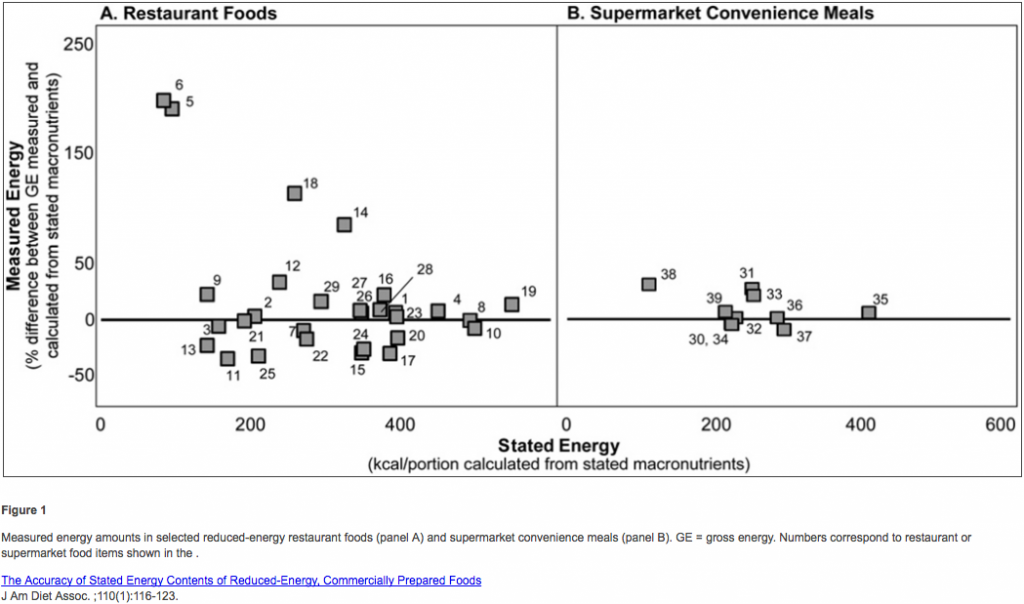
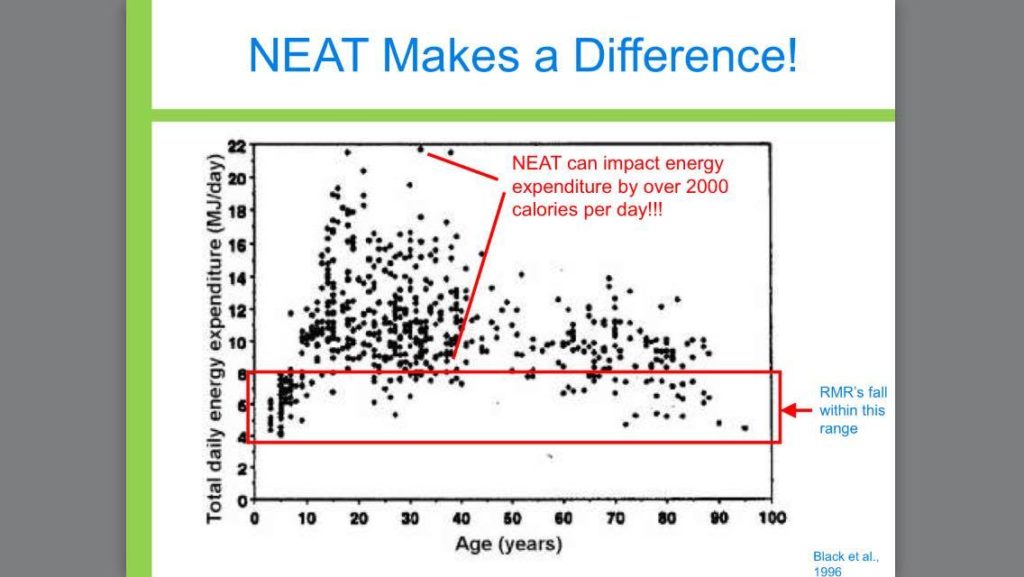
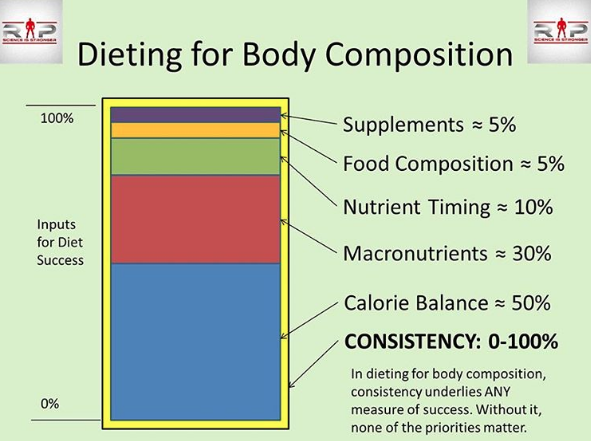
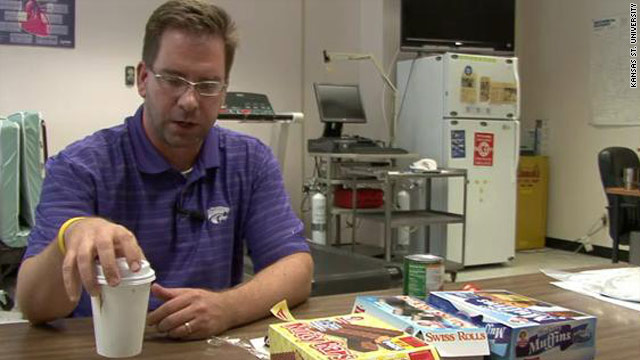
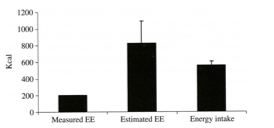
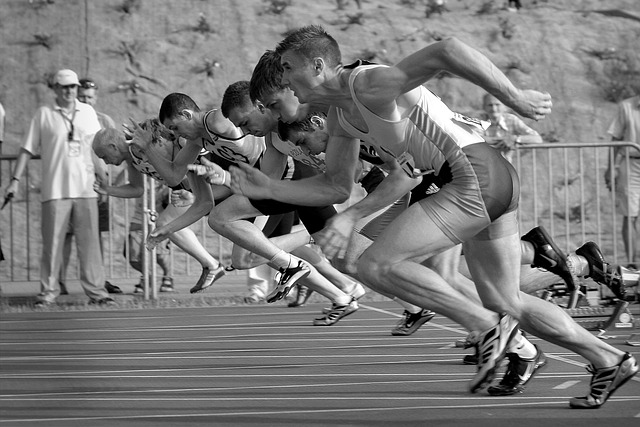
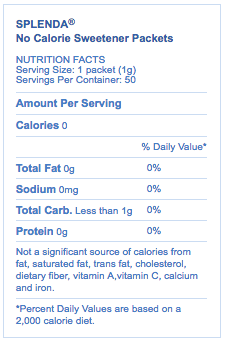




Comments are closed.